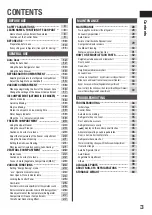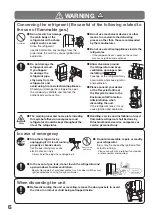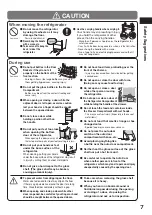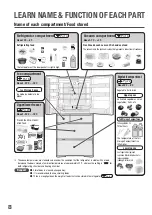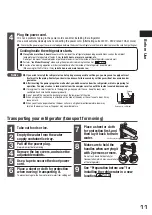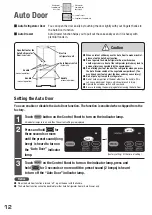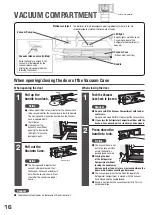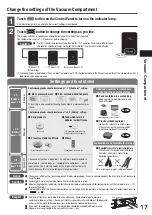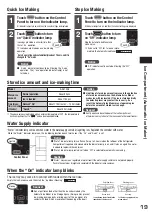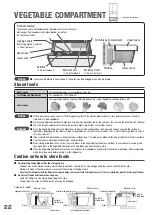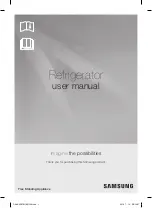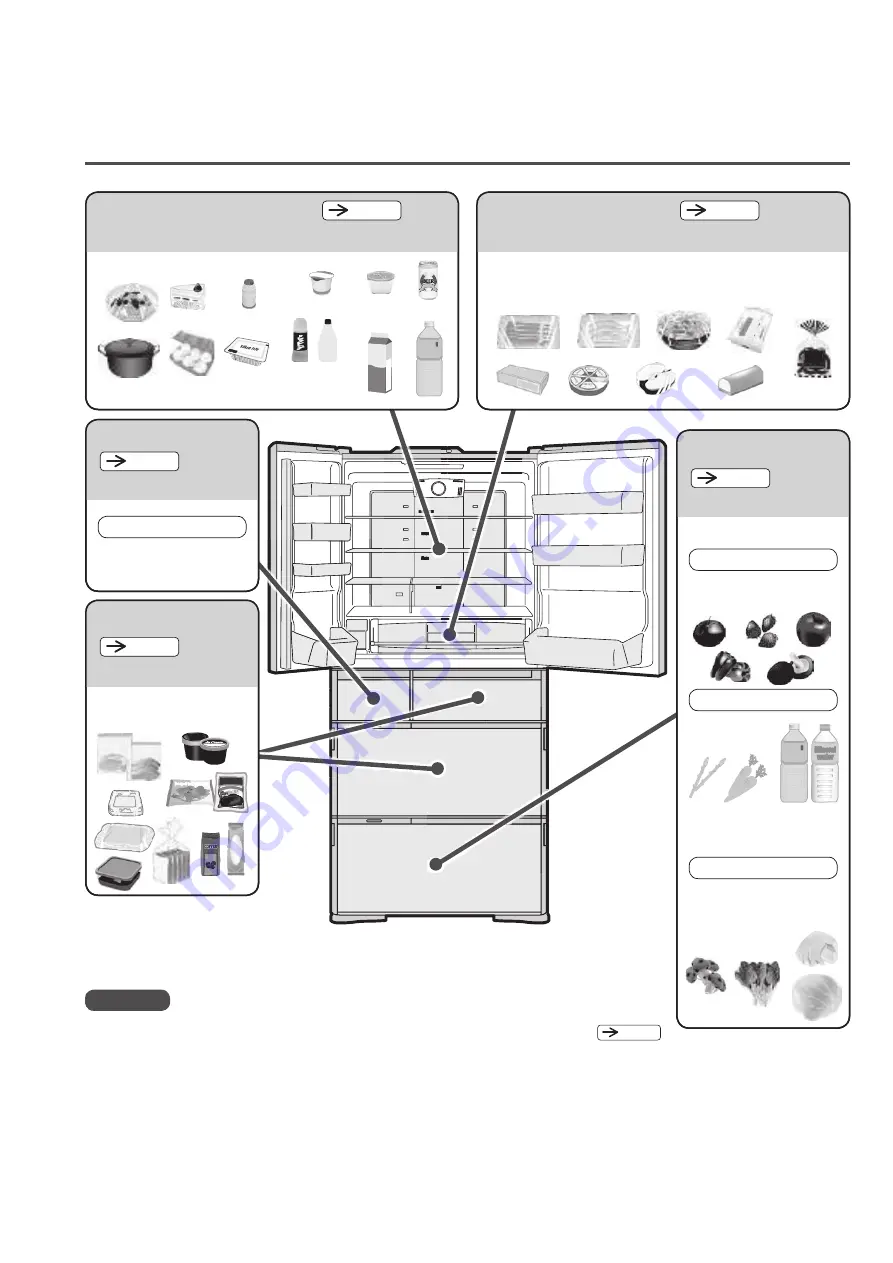
8
LEARN NAME & FUNCTION OF EACH PART
Name of each compartment/Food stored
●
Store foods in a loosely arranged way.
●
It is recommended to wrap smelling foods.
●
There is a rough guide on the weight of foods that can be stored in the refrigerator.
Pg.80
Rice
Frozen
wheat noodle
Hamburger
Deep-fried chicken
Deep-fried chicken
New
tea
leaves
Fish
sausage
Butter
Vienna
sausage
Milk
Tea
Yogurt
Lactobacillus
beverage
Refrigerator compartment
Pg.14
About 2˚C ~ 6˚C
Upper/lower freezer
Pg.20
About -20˚C ~ -18˚C
Vegetable compartment
Pg.22
About 4˚C ~ 8˚C
Vacuum compartment
Pg.16
About -1˚C ~ +1˚C
Refrigerating food
Frozen food/ice-cream/
dried food
Vegetable, fruits, drink
Upper space
Fresh foods such as meat, fi sh and seafood
The vacuum and the platinum catalyst help prevent a reduction in freshness.
Unfi nished vegetables, small
vegetables, fruits, etc.
The temperature at the door pocket is slightly high.
Tea
Mineral
water
Mineral
water
Tall Storage Compartment
Tall vegetables, 2L
PET bottle, etc.
The temperature of the Tall
Storage Compartment is a
little higher.
Lower space
Leaf vegetables (spinach,
Japanese Mustard Spinach etc.),
large vegetables
(cabbage, lettuce), etc.
Ice compartment
Pg.18
About -20˚C ~ -18˚C
Ice made by Automatic Ice
Maker
Ice Storage Space
Request
※
The above temperatures are standard values under the condition that the refrigerator is stable with no food
stored and the doors closed, at ambient temperatures of approximately 32ºC, whereas the setting is “
■■
” for
both refrigerating chamber and freezing chamber.



